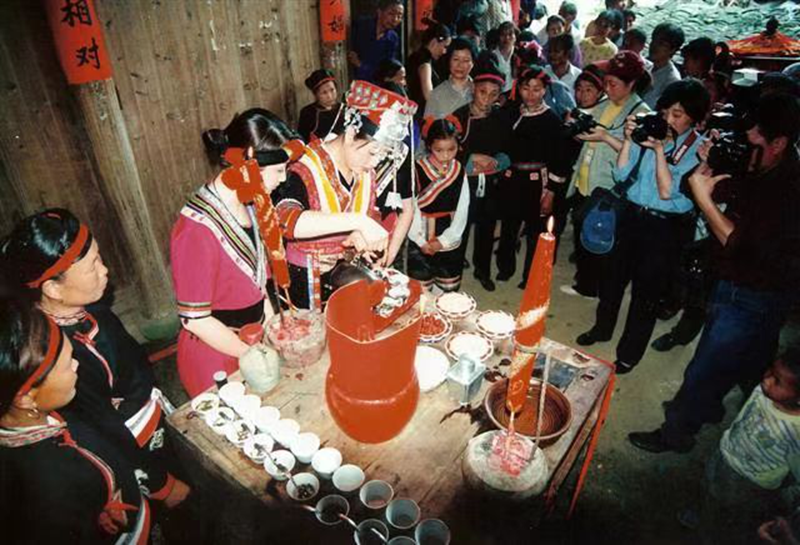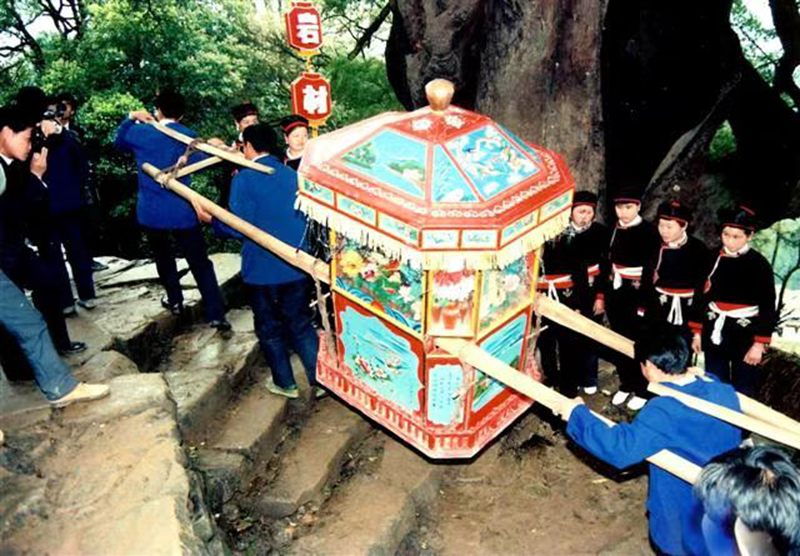
She ethnic marriage custom of the bride's family. [Photo/fujian-szwhg.chaoxing.com]
The She ethnic marriage custom is popular in the eastern Fujian province and is listed in the fourth batch of China's national-level intangible cultural heritage as a representative project in the folk customs category.
The She people in Xiapu county, Ningde, Fujian province, have preserved ancient customs with a complete set of rituals, including marriage negotiations, engagement, the Zuo Biaojie ceremony (acting as the eldest cousin sister), the Zuo Qinjiabo ceremony (acting as the matchmaker's representative), and the wedding ceremony.
The Zuo Biaojie ceremony is a special custom where She girls who are about to get married go to their maternal uncles' homes to engage in antiphonal singing before marriage. This period ranges from half a month to three months, during which time they visit relatives and learn and exchange songs.
The Zuo Qinjiabo ceremony involves a singer invited by the groom's family, who serves as the full-fledged representative of the groom's wedding procedures. The matchmaker's representative takes the betrothal gifts to the bride's family and engages in antiphonal singing at the bride's home.
In She ethnic marriage customs in Xiapu, women enjoy a higher status than men, notably evidenced by their exemption from kneeling. The ceremony integrates dance movements like crouching steps and saluting, alongside procedures such as lantern changing, tea presenting, hall worshiping, and wine toasting.
The wedding customs of the She ethnic group in Xiapu embody the strong ideology of the ethnic group and serve as important vessels of She culture to be passed down from generation to generation.

The scene of the groom's family picking up the bride. [Photo/fujian-szwhg.chaoxing.com]

Copyright © General Office of Fujian Provincial People's Government
Website Identification Code 3500000049Registration Number: 15003084
All rights reserved. The content (including but not limited to text, photo, multimedia information, etc) published in this site belongs to fujian.gov.cn.
Without written authorization from fujian.gov.cn, such content shall not be republished or used in any form.